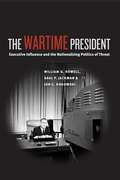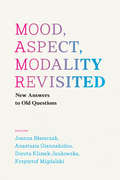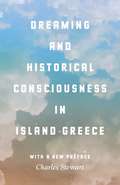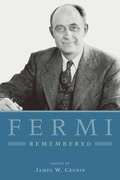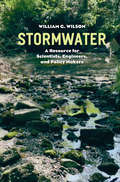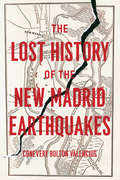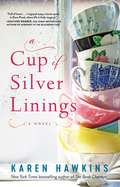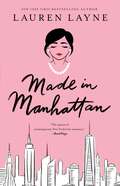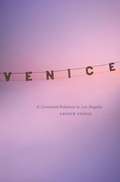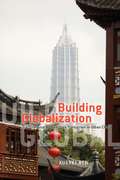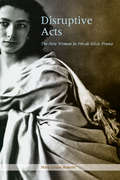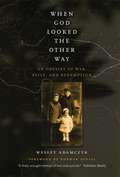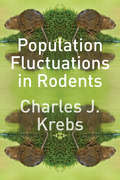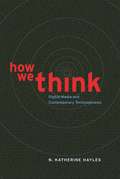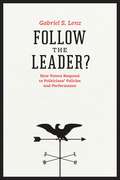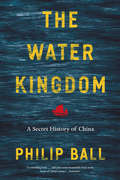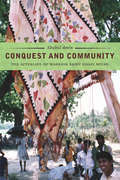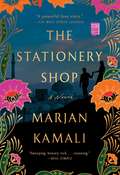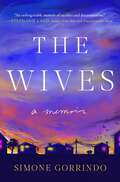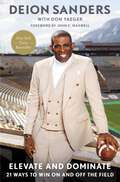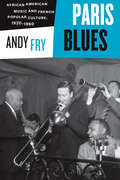- Table View
- List View
The Wartime President: Executive Influence and the Nationalizing Politics of Threat (Chicago Ser. On International And Domestic Institutions Ser.)
by William G. Howell Saul P. Jackman Jon C. Rogowski“It is the nature of war to increase the executive at the expense of the legislative authority,” wrote Alexander Hamilton in the Federalist Papers. The balance of power between Congress and the president has been a powerful thread throughout American political thought since the time of the Founding Fathers. And yet, for all that has been written on the topic, we still lack a solid empirical or theoretical justification for Hamilton’s proposition. For the first time, William G. Howell, Saul P. Jackman, and Jon C. Rogowski systematically analyze the question. Congress, they show, is more likely to defer to the president’s policy preferences when political debates center on national rather than local considerations. Thus, World War II and the post-9/11 wars in Afghanistan and Iraq significantly augmented presidential power, allowing the president to enact foreign and domestic policies that would have been unattainable in times of peace. But, contrary to popular belief, there are also times when war has little effect on a president’s influence in Congress. The Vietnam and Gulf Wars, for instance, did not nationalize our politics nearly so much, and presidential influence expanded only moderately. Built on groundbreaking research, The Wartime President offers one of the most significant works ever written on the wartime powers presidents wield at home.
Mood, Aspect, Modality Revisited: New Answers to Old Questions
by Joanna Błaszczak, Anastasia Giannakidou, Dorota Klimek-Jankowska, Krzysztof MigdalskiOver the past several decades, linguistic theorizing of tense, aspect, and mood (TAM), along with a strongly growing body of crosslinguistic studies, has revealed complexity in the data that challenges traditional distinctions and treatments of these categories. Mood, Aspect, Modality Revisited argues that it’s time to revisit our conventional assumptions and reconsider our foundational questions: What exactly is a linguistic category? What kinds of categories do labels such as “subjunctive,” “imperative,” “future,” and “modality” truly refer to? In short, how categorical are categories? Current literature assumes a straightforward link between grammatical category and semantic function, and descriptions of well-studied languages have cultivated a sense of predictability in patterns over time. As the editors and contributors of Mood, Aspect, Modality Revisited prove, however, this predictability and stability vanish in the study of lesser-known patterns and languages. The ten provocative essays gathered here present fascinating cutting-edge research demonstrating that the traditional grammatical distinctions are ultimately fluid—and perhaps even illusory. Developing groundbreaking and highly original theories, the contributors in this volume seek to unravel more general, fundamental principles of TAM that can help us better understand the nature of linguistic representations.
Dreaming and Historical Consciousness in Island Greece (Cultural Politics, Socioaesthetics, Beginnings Ser. #4)
by Charles StewartOn publication in 2012, Dreaming and Historical Consciousness in Island Greece quickly met wide acclaim as a gripping work that, according to the Times Literary Supplement, “offers a wholly new way of thinking about dreams in their social contexts.” It tells an extraordinary story of spiritual fervor, prophecy, and the ghosts of the distant past coming alive in the present. This new affordable paperback brings it to the wider audience that it deserves. Charles Stewart tells the story of the inhabitants of Kóronos, on the Greek island of Naxos, who, in the 1830s, began experiencing dreams in which the Virgin Mary instructed them to search for buried Christian icons nearby and build a church to house the ones they found. Miraculously, they dug and found several icons and human remains, and at night the ancient owners of them would speak to them in dreams. The inhabitants built the church and in the years since have experienced further waves of dreams and startling prophesies that shaped their understanding of the past and future and often put them at odds with state authorities. Today, Kóronos is the site of one of the largest annual pilgrimages in the Mediterranean. Telling this fascinating story, Stewart draws on his long-term fieldwork and original historical sources to explore dreaming as a mediator of historical change, while widening the understanding of historical consciousness and history itself.
Fermi Remembered
by James W. CroninNobel laureate and scientific luminary Enrico Fermi (1901-54) was a pioneering nuclear physicist whose contributions to the field were numerous, profound, and lasting. Best known for his involvement with the Manhattan Project and his work at Los Alamos that led to the first self-sustained nuclear reaction and ultimately to the production of electric power and plutonium for atomic weapons, Fermi's legacy continues to color the character of the sciences at the University of Chicago. During his tenure as professor of physics at the Institute for Nuclear Studies, Fermi attracted an extraordinary scientific faculty and many talented students—ten Nobel Prizes were awarded to faculty or students under his tutelage. Born out of a symposium held to commemorate the hundredth anniversary of Fermi's birth, Fermi Remembered combines essays and newly commissioned reminiscences with private material from Fermi's research notebooks, correspondence, speech outlines, and teaching to document the profound and enduring significance of Fermi's life and labors. The volume also features extensives archival material—including correspondence between Fermi and biophysicist Leo Szilard and a letter from Harry Truman—with new introductions that provide context for both the history of physics and the academic tradition at the University of Chicago. Edited by James W. Cronin, a University of Chicago physicist and Nobel laureate himself, Fermi Remembered is a tender tribute to one of the greatest scientists of the twentieth century. Contributors: Harold Agnew Nina Byers Owen Chamberlain Geoffrey F. Chew James W. Cronin George W. Farwell Jerome I. Friedman Richard L. Garwin Murray Gell-Mann Maurice Glicksman Marvin L. Goldberger Uri Haber-Schaim Roger Hildebrand Tsung Dao Lee Darragh Nagle Jay Orear Marshall N. Rosenbluth Arthur Rosenfeld Robert Schluter Jack Steinberger Valentine Telegdi Al Wattenberg Frank Wilczek Lincoln Wolfenstein Courtenay Wright Chen Ning Yang Gaurang Yodh
Stormwater: A Resource for Scientists, Engineers, and Policy Makers
by William G. WilsonAs cities grow and climates change, precipitation increases, and with every great storm—from record-breaking Boston blizzards to floods in Houston—come buckets of stormwater and a deluge of problems. In Stormwater, William G. Wilson brings us the first expansive guide to stormwater science and management in urban environments, where rising runoff threatens both human and environmental health. As Wilson shows, rivers of runoff flowing from manmade surfaces—such as roads, sidewalks, and industrial sites—carry a glut of sediments and pollutants. Unlike soil, pavement does not filter or biodegrade these contaminants. Oil, pesticides, road salts, metals, automobile chemicals, and bacteria all pour into stormwater systems. Often this runoff discharges directly into waterways, uncontrolled and untreated, damaging valuable ecosystems. Detailing the harm that can be caused by this urban runoff, Wilson also outlines methods of control, from restored watersheds to green roofs and rain gardens, and, in so doing, gives hope in the face of an omnipresent threat. Illustrated throughout, Stormwater will be an essential resource for urban planners and scientists, policy makers, citizen activists, and environmental educators in the stormy decades to come.
The Lost History of the New Madrid Earthquakes
by Conevery Bolton ValenciusFrom December 1811 to February 1812, massive earthquakes shook the middle Mississippi Valley, collapsing homes, snapping large trees midtrunk, and briefly but dramatically reversing the flow of the continent’s mightiest river. For decades, people puzzled over the causes of the quakes, but by the time the nation began to recover from the Civil War, the New Madrid earthquakes had been essentially forgotten. In The Lost History of the New Madrid Earthquakes, Conevery Bolton Valencius remembers this major environmental disaster, demonstrating how events that have been long forgotten, even denied and ridiculed as tall tales, were in fact enormously important at the time of their occurrence, and continue to affect us today. Valencius weaves together scientific and historical evidence to demonstrate the vast role the New Madrid earthquakes played in the United States in the early nineteenth century, shaping the settlement patterns of early western Cherokees and other Indians, heightening the credibility of Tecumseh and Tenskwatawa for their Indian League in the War of 1812, giving force to frontier religious revival, and spreading scientific inquiry. Moving into the present, Valencius explores the intertwined reasons—environmental, scientific, social, and economic—why something as consequential as major earthquakes can be lost from public knowledge, offering a cautionary tale in a world struggling to respond to global climate change amid widespread willful denial. Engagingly written and ambitiously researched—both in the scientific literature and the writings of the time—The Lost History of the New Madrid Earthquakes will be an important resource in environmental history, geology, and seismology, as well as history of science and medicine and early American and Native American history.
Becky Lynch: Not Your Average Average Girl
by Rebecca QuinINSTANT NEW YORK TIMES BESTSELLER This compelling and candid memoir from WWE superstar Rebecca Quin—a.k.a. The Man, a.k.a. Becky Lynch—delves into her earliest wrestling days, her scrappy beginnings, and her meteoric rise to fame. Raised in Dublin, Ireland, in a devoutly Catholic family, Rebecca Quin constantly invented new ways to make her mother worry—roughhousing with the neighborhood kids, hosting secret parties while her parents were away, enrolling in a warehouse wrestling school, nearly breaking her neck and almost kneecapping a WWE star before her own wrestling career even began—and she was always in search of a thrilling escape from the ordinary. Rebecca&’s childhood love of wrestling set her on an unlikely path. With few female wrestlers to look to for guidance, Rebecca pursued a wrestling career hoping to change the culture and move it away from the antiquated disrespect so often directed at the elite female athletes who grace the ring. Even as a teenager, she knew that she would stop at nothing to earn a space among the greatest wrestlers of our time and to pave a new path for female fighters. Culled from decades of journal entries, Rebecca&’s memoir offers a raw, exclusive, and honest depiction of the complex woman behind the character Rebecca Quin plays on TV.
A Cup of Silver Linings (Dove Pond Series #2)
by Karen HawkinsDiscover the &“sometimes whimsical, often insightful, always absorbing&” (Shelf Awareness) Dove Pond series with this novel that explores the magic in the tea leaves—from New York Times bestselling author Karen Hawkins.Ava Dove—the sixth of the seven famed Dove sisters and owner of Ava Dove&’s Landscaping and Specialty Teas—is frantic. Just as her new tearoom is about to open, her herbal teas have gone haywire. Suddenly, her sleep-inducing tea is startling her clients awake with vivid dreams, her romance-kindling tea is causing people to blurt out their darkest secrets, and her anti-anxiety tea is making them spend hours staring into mirrors. Ava is desperate for a remedy, but her search leads her into dangerous territory, as she is forced to face a dark secret she&’s been hiding for over a decade. Meanwhile, successful architect Ellen Foster has arrived in Dove Pond to attend the funeral of her estranged daughter, Julie. Grieving deeply, Ellen is determined to fix up her daughter&’s ramshackle house, sell it, and then sweep her sixteen-year-old granddaughter, Kristen, off to a saner, calmer life. But Kristen has other plans. Desperate to stay with her friends in Dove Pond, she sets off on a quest she&’s avoided her whole life—to find her absent father in the hopes of winning her freedom from the grandmother she barely knows. Together, Ava, Kristen, and Ellen embark on a reluctant but magical journey of healing, friendship, and family in a &“cozy, big-hearted read&” (Booklist) that will delight fans of Alice Hoffman, Kate Morton, and Sarah Addison Allen.
Made in Manhattan
by Lauren LayneFrom the New York Times bestselling author of the Central Park Pact comes a reverse My Fair Lady for the modern era about a pampered and privileged Manhattan socialite who must teach an unpolished and denim-loving nobody from the Louisiana Bayou how to fit in with the upper crust of New York City. Perfect for fans of Christina Lauren and Sally Thorne.Violet Townsend has always been a people pleaser. Raised in the privileged world of Upper East Side Manhattan, she always says the right things, wears the right clothes, and never rocks the boat. Violet would do anything for the people closest to her, especially her beloved grandmother. So when she asks Violet to teach the newly-discovered grandson of her friend how to fit in with New York City&’s elite, Violet immediately agrees. Her goal? To get Cain Stone ready to take his place as heir to his family company…but to say he&’s not exactly an eager student is an understatement. Born and raised in rural Louisiana and now making his own way in New Orleans, Cain Stone is only playing along for the paycheck at the end. He has no use for the grandmother he didn&’t know existed and no patience for the uppity Violet&’s attempts to turn him into a suit-wearing, museum-attending gentleman. But somewhere amidst antagonistic dinner parties and tortured tux fittings, Cain and Violet come to a begrudging understanding—and the uptight Violet realizes she&’s not the only one doing the teaching. As she and Cain begin to find mutual respect for one another (and maybe even something more), Violet learns that blindly following society&’s rules doesn&’t lead to happiness…and that sometimes the best things in life come from the most unexpected places.
To Sir, with Love
by Lauren LayneLove Is Blind meets You&’ve Got Mail in this laugh-out-loud romantic comedy following two thirty-somethings who meet on a blind dating app—only to realize that their online chemistry is nothing compared to their offline rivalry.Perpetually cheerful and eager to please, Gracie Cooper strives to make the best out of every situation. So when her father dies just months after a lung cancer diagnosis, she sets aside her dreams of pursuing her passion for art to take over his Midtown Manhattan champagne shop. She soon finds out that the store&’s profit margins are being squeezed perilously tight, and complicating matters further, a giant corporation headed by the impossibly handsome, but irritatingly arrogant Sebastian Andrews is proposing a buyout. But Gracie can&’t bear the thought of throwing away her father&’s dream like she did her own. Overwhelmed and not wanting to admit to her friends or family that she&’s having second thoughts about the shop, Gracie seeks advice and solace from someone she&’s never met—the faceless &“Sir&”, with whom she connected on a blind dating app where matches get to know each other through messages and common interests before exchanging real names or photos. But although Gracie finds herself slowly falling for Sir online, she has no idea she&’s already met him in real life…and they can&’t stand each other.
The Book Charmer (Dove Pond Series #1)
by Karen HawkinsPrepare to fall under the spell of &“this sometimes whimsical, often insightful, always absorbing story&” (Shelf Awareness) following two fiercely independent women and their truly magical friendship in a sleepy Southern town, from New York Times bestselling author of Karen Hawkins.Sarah Dove is no ordinary bookworm. To her, books live, breathe, and sometimes even speak. As the librarian in her quaint Southern town of Dove Pond, her gift helps place every book in the hands of the perfect reader. Recently, however, the books have been whispering about something out of the ordinary: the arrival of a displaced city girl named Grace Wheeler. If the books are right, Grace could be the savior Dove Pond desperately needs. The problem is, Grace wants little to do with the town or its quirky residents—Sarah chief among them. But with a bit of urging, and the help of an especially wise book, will Grace ultimately embrace the challenge to rescue her charmed new community? &“A mesmerizing fusion of the mystical and the everyday&” (Susan Andersen, New York Times bestselling author), The Book Charmer is a heartwarming story about the magic of books that feels more than a little magical itself.
The Secret Recipe of Ella Dove (Dove Pond Series #3)
by Karen HawkinsThree lives converge as a wildly talented baker returns to Dove Pond to face her past in this entry in the charming series that proves that sometimes miracles really do happen...Ella Dove is an acclaimed baker whose desserts spark vivid, cherished memories in those who taste them. A restless soul, Ella goes wherever the wind takes her—but driven by a haunting dream, she&’s coming home to Dove Pond. Years ago, her mentor, Angela Stewart Harrington, falsely accused Ella of stealing her beloved family recipe book, known as the Book of Cakes. Now, Ella believes it&’s time for them to reconcile. Angela has her own share of amends to make. Her daughter Jules has never forgiven her for divorcing her father, and they&’ve been estranged ever since. But just as Angela begins to hope that she and Jules might mend their tattered relationship, a miscommunication turns into a lie that could destroy everything. Meanwhile, Jules&’s son Gray is shocked that Ella, his first love and his first heartbreak, has returned to Dove Pond. But even though he knows Ella is a wanderer and will soon leave, he&’s unable to stop himself from falling for her once again. Can Gray find a way to convince Ella to give him, and their town, a serious chance? Or is he once again on the road to a broken heart? With so much at stake, Ella, Angela, and Gray must learn to accept each other—flaws and all—forgive the many mistakes of their pasts, and trust that love can, and will, always find a way. For fans of Alice Hoffman and Sarah Addison Allen, The Secret Recipe of Ella Dove is a delicious and magical read that will warm your heart and charm your senses.
Venice: A Contested Bohemia in Los Angeles
by Andrew DeenerNestled between Santa Monica and Marina del Rey, Venice is a Los Angeles community filled with apparent contradictions. There, people of various races and classes live side by side, a population of astounding diversity bound together by geographic proximity. From street to street, and from block to block, million dollar homes stand near housing projects and homeless encampments; and upscale boutiques are just a short walk from the (in)famous Venice Beach where artists and carnival performers practice their crafts opposite cafés and ragtag tourist shops. In Venice: A Contested Bohemia in Los Angeles, Andrew Deener invites the reader on an ethnographic tour of this legendary California beach community and the people who live there. In writing this book, the ethnographer became an insider; Deener lived as a resident of Venice for close to six years. Here, he brings a scholarly eye to bear on the effects of gentrification, homelessness, segregation, and immigration on this community. Through stories from five different parts of Venice—Oakwood, Rose Avenue, the Boardwalk, the Canals, and Abbot Kinney Boulevard— Deener identifies why Venice maintained its diversity for so long and the social and political factors that threaten it. Drenched in the details of Venice’s transformation, the themes and explanations will resonate far beyond this one city. Deener reveals that Venice is not a single locale, but a collection of neighborhoods, each with its own identity and conflicts—and he provides a cultural map infinitely more useful than one that merely shows streets and intersections. Deener's Venice appears on these pages fully fleshed out and populated with a stunning array of people. Though the character of any neighborhood is transient, Deener's work is indelible and this book will be studied for years to come by scholars across the social sciences.
Building Globalization: Transnational Architecture Production in Urban China
by Xuefei RenFrom the years 2004 to 2008, Beijing and Shanghai witnessed the construction of an extraordinary number of new buildings, many of which were designed by architectural firms overseas. Combining ethnographic fieldwork, historical research, and network analysis, Building Globalization closely scrutinizes the growing phenomenon of transnational architecture and its profound effect on the development of urban space. Roaming from construction sites in Shanghai to architects’ offices in Paris, Xuefei Ren interviews hundreds of architects, developers, politicians, residents, and activists to explore this issue. She finds that in the rapidly transforming cities of modern China, iconic designs from prestigious international architects help private developers to distinguish their projects, government officials to advance their careers, and the Chinese state to announce the arrival of modern China on the world stage. China leads the way in the globalization of architecture, a process whose ramifications can be felt from Beijing to Dubai to Basel. Connecting the dots between real estate speculation, megaproject construction, residential displacement, historical preservation, housing rights, and urban activism, Building Globalization reveals the contradictions and consequences of this new, global urban frontier.
Disruptive Acts: The New Woman in Fin-de-Siècle France
by Mary Louise RobertsIn fin-de-siècle France, politics were in an uproar, and gender roles blurred as never before. Into this maelstrom stepped the "new women," a group of primarily urban, middle-class French women who became the objects of intense public scrutiny. Some remained single, some entered nontraditional marriages, and some took up the professions of medicine and law, journalism and teaching. All of them challenged traditional notions of womanhood by living unconventional lives and doing supposedly "masculine" work outside the home. Mary Louise Roberts examines a constellation of famous new women active in journalism and the theater, including Marguerite Durand, founder of the women's newspaper La Fronde; the journalists Séverine and Gyp; and the actress Sarah Bernhardt. Roberts demonstrates how the tolerance for playacting in both these arenas allowed new women to stage acts that profoundly disrupted accepted gender roles. The existence of La Fronde itself was such an act, because it demonstrated that women could write just as well about the same subjects as men—even about the volatile Dreyfus Affair. When female reporters for La Fronde put on disguises to get a scoop or wrote under a pseudonym, and when actresses played men on stage, they demonstrated that gender identities were not fixed or natural, but inherently unstable. Thanks to the adventures of new women like these, conventional domestic femininity was exposed as a choice, not a destiny. Lively, sophisticated, and persuasive, Disruptive Acts will be a major work not just for historians, but also for scholars of cultural studies, gender studies, and the theater.
When God Looked the Other Way: An Odyssey of War, Exile, and Redemption
by Wesley AdamczykOften overlooked in accounts of World War II is the Soviet Union's quiet yet brutal campaign against Polish citizens, a campaign that included, we now know, war crimes for which the Soviet and Russian governments only recently admitted culpability. Standing in the shadow of the Holocaust, this episode of European history is often overlooked. Wesley Adamczyk's gripping memoir, When God Looked the Other Way, now gives voice to the hundreds of thousands of victims of Soviet barbarism. Adamczyk was a young Polish boy when he was deported with his mother and siblings from their comfortable home in Luck to Soviet Siberia in May of 1940. His father, a Polish Army officer, was taken prisoner by the Red Army and eventually became one of the victims of the Katyn massacre, in which tens of thousands of Polish officers were slain at the hands of the Soviet secret police. The family's separation and deportation in 1940 marked the beginning of a ten-year odyssey in which the family endured fierce living conditions, meager food rations, chronic displacement, and rampant disease, first in the Soviet Union and then in Iran, where Adamczyk's mother succumbed to exhaustion after mounting a harrowing escape from the Soviets. Wandering from country to country and living in refugee camps and the homes of strangers, Adamczyk struggled to survive and maintain his dignity amid the horrors of war.When God Looked the Other Way is a memoir of a boyhood lived in unspeakable circumstances, a book that not only illuminates one of the darkest periods of European history but also traces the loss of innocence and the fight against despair that took root in one young boy. It is also a book that offers a stark picture of the unforgiving nature of Communism and its champions. Unflinching and poignant, When God Looked the Other Way will stand as a testament to the trials of a family during wartime and an intimate chronicle of episodes yet to receive their historical due.“Adamczyk recounts the story of his own wartime childhood with exemplary precision and immense emotional sensitivity, presenting the ordeal of one family with the clarity and insight of a skilled novelist. . . . I have read many descriptions of the Siberian odyssey and of other forgotten wartime episodes. But none of them is more informative, more moving, or more beautifully written than When God Looked the Other Way.”—From the Foreword by Norman Davies, author of Europe: A History and Rising ’44: TheBattleforWarsaw “A finely wrought memoir of loss and survival.”—Publishers Weekly “Adamczyk’s unpretentious prose is well-suited to capture that truly awful reality.” —Andrew Wachtel, Chicago Tribune Books “Mr. Adamczyk writes heartfelt, straightforward prose. . . . This book sheds light on more than one forgotten episode of history.”—Gordon Haber, New York Sun “One of the most remarkable World War II sagas I have ever read. It is history with a human face.”—Andrew Beichman, Washington Times
Population Fluctuations in Rodents
by Charles J. KrebsHow did rodent outbreaks in Germany help to end World War I? What caused the destructive outbreak of rodents in Oregon and California in the late 1950s, the large population outbreak of lemmings in Scandinavia in 2010, and the great abundance of field mice in Scotland in the spring of 2011? Population fluctuations, or outbreaks, of rodents constitute one of the classic problems of animal ecology, and in Population Fluctuations in Rodents, Charles J. Krebs sifts through the last eighty years of research to draw out exactly what we know about rodent outbreaks and what should be the agenda for future research. Krebs has synthesized the research in this area, focusing mainly on the voles and lemmings of the Northern Hemisphere—his primary area of expertise—but also referring to the literature on rats and mice. He covers the patterns of changes in reproduction and mortality and the mechanisms that cause these changes—including predation, disease, food shortage, and social behavior—and discusses how landscapes can affect population changes, methodically presenting the hypotheses related to each topic before determining whether or not the data supports them. He ends on an expansive note, by turning his gaze outward and discussing how the research on rodent populations can apply to other terrestrial mammals. Geared toward advanced undergraduate students, graduate students, and practicing ecologists interested in rodent population studies, this book will also appeal to researchers seeking to manage rodent populations and to understand outbreaks in both natural and urban settings—or, conversely, to protect endangered species.
How We Think: Digital Media and Contemporary Technogenesis
by N. Katherine Hayles“How do we think?” N. Katherine Hayles poses this question at the beginning of this bracing exploration of the idea that we think through, with, and alongside media. As the age of print passes and new technologies appear every day, this proposition has become far more complicated, particularly for the traditionally print-based disciplines in the humanities and qualitative social sciences. With a rift growing between digital scholarship and its print-based counterpart, Hayles argues for contemporary technogenesis—the belief that humans and technics are coevolving—and advocates for what she calls comparative media studies, a new approach to locating digital work within print traditions and vice versa.Hayles examines the evolution of the field from the traditional humanities and how the digital humanities are changing academic scholarship, research, teaching, and publication. She goes on to depict the neurological consequences of working in digital media, where skimming and scanning, or “hyper reading,” and analysis through machine algorithms are forms of reading as valid as close reading once was. Hayles contends that we must recognize all three types of reading and understand the limitations and possibilities of each. In addition to illustrating what a comparative media perspective entails, Hayles explores the technogenesis spiral in its full complexity. She considers the effects of early databases such as telegraph code books and confronts our changing perceptions of time and space in the digital age, illustrating this through three innovative digital productions—Steve Tomasula’s electronic novel, TOC; Steven Hall’s The Raw Shark Texts; and Mark Z. Danielewski’s Only Revolutions. Deepening our understanding of the extraordinary transformative powers digital technologies have placed in the hands of humanists, How We Think presents a cogent rationale for tackling the challenges facing the humanities today.
Follow the Leader?: How Voters Respond to Politicians' Policies and Performance (Chicago Studies In American Politics Ser.)
by Gabriel S. LenzIn a democracy, we generally assume that voters know the policies they prefer and elect like-minded officials who are responsible for carrying them out. We also assume that voters consider candidates' competence, honesty, and other performance-related traits. But does this actually happen? Do voters consider candidates’ policy positions when deciding for whom to vote? And how do politicians’ performances in office factor into the voting decision? In Follow the Leader?, Gabriel S. Lenz sheds light on these central questions of democratic thought. Lenz looks at citizens’ views of candidates both before and after periods of political upheaval, including campaigns, wars, natural disasters, and episodes of economic boom and bust. Noting important shifts in voters’ knowledge and preferences as a result of these events, he finds that, while citizens do assess politicians based on their performance, their policy positions actually matter much less. Even when a policy issue becomes highly prominent, voters rarely shift their votes to the politician whose position best agrees with their own. In fact, Lenz shows, the reverse often takes place: citizens first pick a politician and then adopt that politician’s policy views. In other words, they follow the leader. Based on data drawn from multiple countries, Follow the Leader? is the most definitive treatment to date of when and why policy and performance matter at the voting booth, and it will break new ground in the debates about democracy.
The Water Kingdom: A Secret History of China
by Philip BallFrom the Yangtze to the Yellow River, China is traversed by great waterways, which have defined its politics and ways of life for centuries. Water has been so integral to China’s culture, economy, and growth and development that it provides a window on the whole sweep of Chinese history. In The Water Kingdom, renowned writer Philip Ball opens that window to offer an epic and powerful new way of thinking about Chinese civilization. Water, Ball shows, is a key that unlocks much of Chinese culture. In The Water Kingdom, he takes us on a grand journey through China’s past and present, showing how the complexity and energy of the country and its history repeatedly come back to the challenges, opportunities, and inspiration provided by the waterways. Drawing on stories from travelers and explorers, poets and painters, bureaucrats and activists, all of whom have been influenced by an environment shaped and permeated by water, Ball explores how the ubiquitous relationship of the Chinese people to water has made it an enduring metaphor for philosophical thought and artistic expression. From the Han emperors to Mao, the ability to manage the waters ? to provide irrigation and defend against floods ? was a barometer of political legitimacy, often resulting in engineering works on a gigantic scale. It is a struggle that continues today, as the strain of economic growth on water resources may be the greatest threat to China’s future.The Water Kingdom offers an unusual and fascinating history, uncovering just how much of China’s art, politics, and outlook have been defined by the links between humanity and nature.
Conquest and Community: The Afterlife of Warrior Saint Ghazi Miyan
by Shahid AminFew topics in South Asian history are as contentious as that of the Turkic conquest of the Indian subcontinent that began in the twelfth century and led to a long period of Muslim rule. How is a historian supposed to write honestly about the bloody history of the conquest without falling into communitarian traps? Conquest and Community is Shahid Amin's answer. Covering more than eight hundred years of history, the book centers on the enduringly popular saint Ghazi Miyan, a youthful soldier of Islam whose shrines are found all over India. Amin details the warrior saint’s legendary exploits, then tracks the many ways he has been commemorated in the centuries since. The intriguing stories, ballads, and proverbs that grew up around Ghazi Miyan were, Amin shows, a way of domesticating the conquest—recognizing past conflicts and differences but nevertheless bringing diverse groups together into a community of devotees. What seems at first glance to be the story of one mythical figure becomes an allegory for the history of Hindu-Muslim relations over an astonishingly long period of time, and a timely contribution to current political and historical debates.
The Stationery Shop
by Marjan KamaliA poignant, heartfelt new novel by the award-nominated author of Together Tea—extolled by the Wall Street Journal as a &“moving tale of lost love&” and by Shelf Awareness as &“a powerful, heartbreaking story&”—explores loss, reconciliation, and the quirks of fate. Roya, a dreamy, idealistic teenager living amid the political upheaval of 1953 Tehran, finds a literary oasis in kindly Mr. Fakhri&’s neighborhood stationery shop, stocked with books and pens and bottles of jewel-colored ink. Then Mr. Fakhri, with a keen instinct for a budding romance, introduces Roya to his other favorite customer—handsome Bahman, who has a burning passion for justice and a love for Rumi&’s poetry—and she loses her heart at once. Their romance blossoms, and the little stationery shop remains their favorite place in all of Tehran. A few short months later, on the eve of their marriage, Roya agrees to meet Bahman at the town square when violence erupts—a result of the coup d&’etat that forever changes their country&’s future. In the chaos, Bahman never shows. For weeks, Roya tries desperately to contact him, but her efforts are fruitless. With a sorrowful heart, she moves on—to college in California, to another man, to a life in New England—until, more than sixty years later, an accident of fate leads her back to Bahman and offers her a chance to ask him the questions that have haunted her for more than half a century: Why did you leave? Where did you go? How is it that you were able to forget me?
The Wives: A Memoir
by Simone Gorrindo&“[Simone] Gorrindo&’s prose is inviting and fluid, and her storytelling is intimate and vivid...[an] engaging, evocative memoir.&” —The New York Times Book Review &“A hopeful, unifying memoir.&” —People &“A haunting, beautifully written celebration of found sisterhood.&” —Publishers Weekly (starred review) &“A fearless, engaging, and important memoir.&” —Library Journal (starred review) &“[A] gorgeously rendered peek behind the curtain of military life.&” —Booklist (starred review) A captivating memoir that tells the story of one woman&’s experience of joining a community of army wives after leaving her New York City job—a profoundly intimate look at marriage, friendship, and the power of human connection.When her new husband joins an elite Army unit, Simone Gorrindo is uprooted from New York City and dropped into Columbus, Georgia. With her husband frequently deployed, Simone is left to find her place in this new world, alone—until she meets the wives. Gorrindo gives us an intimate look into the inner lives of a remarkable group of women and a tender, unflinching portrait of a marriage. A love story, an unforgettable coming-of-age tale, and a bracing tour of the intractable divisions that plague our country today, The Wives offers a rare and powerful gift: a hopeful stitch in the fabric of a torn America.
Elevate and Dominate: 21 Ways to Win On and Off the Field
by Deion SandersInstant New York Times Bestseller Deion &“Coach Prime&” Sanders is one of the greatest motivators and inspirational leaders of all time—on the field, in business, with family, and in his community. Now, he delivers the ultimate playbook of inspiring personal stories, winning strategies, and the motivation required to help us &“elevate and dominate&” in all aspects of our lives. A natural-born leader, Deion Sanders demands and expects the best from himself and from those around him, never settling for anything less. Whether it&’s dealing with intense pressure, using the competition to his advantage, or navigating personal challenges—both physical and emotional—Sanders has conquered it all by applying the hard-earned principles he&’s learned throughout his life and career. The twenty-one inspirational ways to win here are based on the motivational stories and experiences of Sanders&’s incredible life, including being raised by a single mother who sacrificed and worked nonstop to support her family, being enshrined in the Pro Football Hall of Fame, earning his place as a head coach with a Division I football team, and being a dedicated father of five accomplished children. His inspirational messages reach far beyond the world of sports because they are based on deep faith, respect for himself and others, and an unflagging commitment to that which he believes in. They are designed to help anyone who is looking to improve the quality of their life, whether it be in business and leadership, relationships and partnership, or parenting and family. Through his unique and powerful lens, Coach Prime provides the direction, motivation, and action required for anyone to dominate and win at life.
Paris Blues: African American Music and French Popular Culture, 1920–1960
by Andy FryThe Jazz Age. The phrase conjures images of Louis Armstrong holding court at the Sunset Cafe in Chicago, Duke Ellington dazzling crowds at the Cotton Club in Harlem, and star singers like Bessie Smith and Ma Rainey. But the Jazz Age was every bit as much of a Paris phenomenon as it was a Chicago and New York scene. In Paris Blues, Andy Fry provides an alternative history of African American music and musicians in France, one that looks beyond familiar personalities and well-rehearsed stories. He pinpoints key issues of race and nation in France’s complicated jazz history from the 1920s through the 1950s. While he deals with many of the traditional icons—such as Josephine Baker, Django Reinhardt, and Sidney Bechet, among others—what he asks is how they came to be so iconic, and what their stories hide as well as what they preserve. Fry focuses throughout on early jazz and swing but includes its re-creation—reinvention—in the 1950s. Along the way, he pays tribute to forgotten traditions such as black musical theater, white show bands, and French wartime swing. Paris Blues provides a nuanced account of the French reception of African Americans and their music and contributes greatly to a growing literature on jazz, race, and nation in France.
